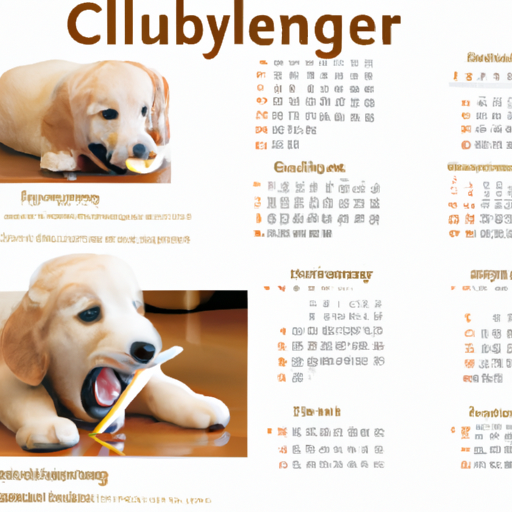Introduction
When you bring home a new, adorable puppy, it’s almost like bringing home a newborn baby. You’ve got a lot to learn about your furry friend, including understanding their teething process. In this guide, we will explore the intriguing process of puppy teething, answering questions like “how long do puppies teeth for?” and “how can I help my puppy through this process?” Let’s dive in.
Understanding Puppy Teething
Just like human babies, puppies have a set of milk teeth that eventually fall out to make way for their permanent adult teeth. This process is often referred to as ‘teething’. The teething phase can start as early as three weeks old, and usually completes around the six-month mark. However, it’s important to remember that every puppy is unique, and this timeline may vary slightly.
The Timeline of Puppy Teething
Here is a general timeline of the puppy teething process:
- 2-4 weeks: Puppies are born without teeth, but their baby teeth start to appear at around two to four weeks of age. These are also known as ‘milk teeth’.
- 5-6 weeks: By five to six weeks, a puppy should have all 28 of its baby teeth. These consist of incisors, canine teeth, and premolars.
- 12-16 weeks: Around the three to four-month mark, the baby teeth start to fall out to make way for the adult teeth. This is also when the teething process becomes most noticeable.
- 6 months: By six months, most puppies have all their 42 adult teeth and the teething process is complete.
Signs of Teething
During the teething phase, your puppy might exhibit certain behaviors or symptoms. These can include:
- Increased chewing
- Drooling
- Changes in appetite
- Red, swollen gums
- Missing teeth or new teeth coming in
How to Help your Teething Puppy
Helping your teething puppy can make this uncomfortable phase more bearable for them. Here are some suggestions:
- Chew Toys: Provide plenty of chew toys for your puppy. This helps to relieve the discomfort and keeps them from chewing on inappropriate items.
- Cold Treats: Just like with human babies, cold items can help soothe a puppy’s sore gums. Try freezing a wet washcloth or a puppy-safe chew toy for them to gnaw on.
- Regular Vet Check-ups: Regular check-ups with your vet can ensure your puppy’s teething process is going smoothly.
Potential Teething Problems
While most puppies go through teething without any major issues, it’s important to keep an eye out for potential problems. These can include retained baby teeth, misaligned teeth, or broken teeth. If you notice anything unusual, consult your vet immediately.
FAQs
1. Is Teething Painful for Puppies?
Yes, just like with human babies, teething can be uncomfortable and even painful for puppies. Providing them with chew toys and cold treats can help soothe their sore gums.
2. How Long Does Teething Last?
The teething process in puppies usually begins at around 2-4 weeks of age and is typically complete by 6 months of age. However, every puppy is different, and some may take a little longer to finish teething.
3. What Should I Do If My Puppy’s Teeth Don’t Fall Out?
If your puppy’s baby teeth don’t fall out to make room for the adult teeth, this can cause problems. It’s best to consult your vet if you notice any retained baby teeth.
4. Can I Brush My Puppy’s Teeth During Teething?
Yes, you can and should brush your puppy’s teeth during teething. However, be gentle and consider using a toothbrush designed for puppies or a finger brush.
Conclusion
Teething is a normal part of your puppy’s development. Understanding this process can help you provide the best care for your puppy during this time. Remember, while teething can be a challenging phase for both you and your puppy, it’s also a temporary one. With the right knowledge and tools, you can help your puppy navigate this phase with ease, setting them up for a lifetime of good dental health.



